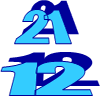Skip over navigation
This problem follows on from Magic Potting Sheds
After a year of successful gardening using his magic doubling shed (introduced in Magic Potting Sheds), Mr McGregor buys a new shed that trebles the number of plants in it each night. Use the interactivity to investigate how many plants he needs this time to get the same number in each garden. What is the smallest number of plants he could use?
Move the slider at the bottom to choose the Magic Multiplier for the shed. Type in the input box or use the slider below it to choose how many plants to buy.
Can you predict how many plants he would need on the first day and how many he should plant each day if he bought a new shed that quadruples the number of plants in it each night?
Use the interactivity to test your prediction.
Mr McGregor is so successful that he decides to plant more gardens. He can still only plant one garden each day.
Use the interactivity to change the number of gardens and investigate how many plants he should use for each of the different potting sheds.
What do you find?
Can you find a general rule?
Can you explain why your rule works?
Unfortunately, Mr McGregor suffers an attack from evil magic slugs that eat half of the plants in his (non-magic) potting shed each night. He still wishes to plant the same number of plants in each garden.
How many plants does he need on the first day this time, and how many should he plant each day? (Remember that he can only plant whole numbers of plants!)


Or search by topic
Number and algebra
Geometry and measure
Probability and statistics
Working mathematically
Advanced mathematics
For younger learners
More Magic Potting Sheds
Age 11 to 16
Challenge Level 





This problem follows on from Magic Potting Sheds
After a year of successful gardening using his magic doubling shed (introduced in Magic Potting Sheds), Mr McGregor buys a new shed that trebles the number of plants in it each night. Use the interactivity to investigate how many plants he needs this time to get the same number in each garden. What is the smallest number of plants he could use?
Move the slider at the bottom to choose the Magic Multiplier for the shed. Type in the input box or use the slider below it to choose how many plants to buy.
Can you predict how many plants he would need on the first day and how many he should plant each day if he bought a new shed that quadruples the number of plants in it each night?
Use the interactivity to test your prediction.
Mr McGregor is so successful that he decides to plant more gardens. He can still only plant one garden each day.
Use the interactivity to change the number of gardens and investigate how many plants he should use for each of the different potting sheds.
What do you find?
Can you find a general rule?
Can you explain why your rule works?
Unfortunately, Mr McGregor suffers an attack from evil magic slugs that eat half of the plants in his (non-magic) potting shed each night. He still wishes to plant the same number of plants in each garden.
How many plants does he need on the first day this time, and how many should he plant each day? (Remember that he can only plant whole numbers of plants!)
You may also like
Adding All Nine
Make a set of numbers that use all the digits from 1 to 9, once and once only. Add them up. The result is divisible by 9. Add each of the digits in the new number. What is their sum? Now try some other possibilities for yourself!
Double Digit
Choose two digits and arrange them to make two double-digit numbers. Now add your double-digit numbers. Now add your single digit numbers. Divide your double-digit answer by your single-digit answer. Try lots of examples. What happens? Can you explain it?

